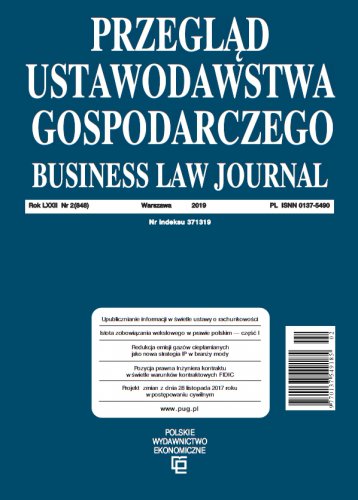Przegląd Ustawodawstwa Gospodarczego 02/2024
ISSN: 0137-5490
Pages: 44
Publication date: 2024
Place publication: Warszawa
Binding: paperback
Format: A4
Publication date: 2024
Place publication: Warszawa
Binding: paperback
Format: A4
DOI: 10.33226/0137-5490.2024.2.1
JEL: K23
DOI: 10.33226/0137-5490.2024.2.2
JEL: K31, K29
DOI: 10.33226/0137-5490.2024.2.3
JEL: K23
DOI: 10.33226/0137-5490.2024.2.4
JEL: F21, F52, K33
DOI: 10.33226/0137-5490.2024.2.5
JEL: K20, K22, K41
DOI: 10.33226/0137-5490.2024.2.6
JEL: K12, K15, K22
| Odbiór osobisty | 0 € |
| Kurier Inpost | 4 € |
| Kurier FedEX | 4 € |
| Inpost Paczkomaty | 4 € |
| Free delivery in Reader's Club | from 47 € |

